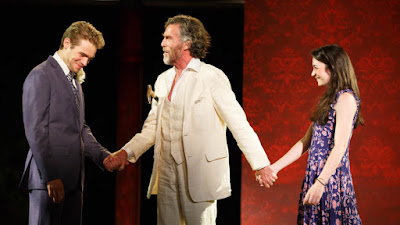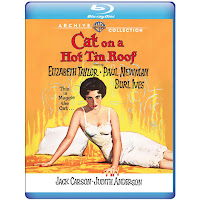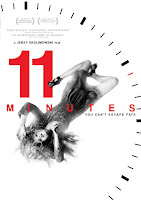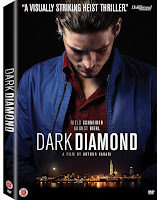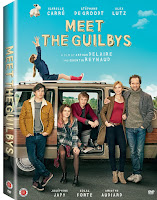- Details
-
Parent Category: Film and the Arts
-
Category: Reviews
-
Published on Wednesday, 17 August 2016 16:10
-
Written by Kevin Filipski
Cat on a Hot Tin Roof
(Warner Archive)
Tennessee Williams’ once-daring Pulitzer Prize-winning play about desperate Maggie the Cat and her uninterested husband Brick was made into a moderately faithful film in 1958 by Richard Brooks, who directs Elizabeth Taylor’s luminous Maggie and Paul Newman’s believable Brick; best, however, is Burl Ives as a gloriously over-the-top Big Daddy: Ives is a scene-stealer of the first order.
Warner Archive’s hi-def transfer is first-rate; extras are a commentary by Williams biographer Donald Spoto and 10-minute featurette narrated by Ashley Judd, a luscious Maggie on Broadway in 2003.
Raiders!
(Drafthouse/MVD)
The story of a group of teenagers who made a shot-for-shot remake of Raiders of the Lost Ark over seven summers starting in 1981 is recounted in this engaging documentary by directors Tim Skousen and Jeremy Coon, who also follow the now-adult filmmakers for one last hurrah: to finish the final shot of their film, a difficult action sequence that was a highlight of Spielberg’s original.
Interviews with those involved—along with admiring fans like Eli Roth and John Rhys Davies—and glimpses of the amateur movie itself (and on-set glimpses at the final shoot) make this a must for movie buffs of all stripes, showing that movies make adults into kids again. The film looks good on Blu; extras include commentaries, deleted scenes, outtakes from the Raiders remake and Q&A from 2003 remake premiere.
Tell Me That You Love Me, Junie Moon
The Pride and the Passion
(Olive Films)
Otto Preminger and Stanley Kramer, two of Hollywood’s most famous directors, made more negligible than good films. Preminger’s Junie Moon (1969) is a weirdly engrossing study of a misfit trio—acid burn victim (Liza Minnelli), shy epileptic (Ken Howard) and wheelchair-bound homosexual (Robert Moore)—trying to find friendship and love when they set up house together.
The principals are quite good, and if Preminger can’t quite make us empathize with them, there’s enough of a real-life spark to make this a fairly successful comic drama. Conversely, Passion might be the superficial Stanley Kramer’s worst film, a bloated and empty 1957 epic set during the Napoleonic wars with a pell-mell ensemble of miscast stars: Cary Grant, Sophia Loren and Frank Sinatra, whose Spanish accent must be heard to be disbelieved. Olive’s fine hi-def transfers are appropriately grainy.
The Vampire Diaries—Complete 7th Season
(Warner Bros)
With actress Nina Dobrev—the most compelling reason to watch this diverting series about young and attractive bloodsuckers in small-town America—gone, Diaries had to basically reboot itself for another season.
The resulting 22 episodes are a decent attempt to do so, with more in the way of starring roles for actresses Kat Graham and Candice King while still showing off actors Paul Wesley and Ian Somerhalder. The series looks excellent on Blu; extras comprise deleted scenes, gag reel, Georgia PSA, directors’ interview and 2-15 Comic-Con Panel.
DVDs of the Week
The Affair—Complete 2nd Season
(Showtime)
I was quickly turned off by the first season of The Affair which, despite estimable acting by the two central couples—played by Dominic West, Maura Tierney, Joshua Jackson and Ruth Wilson—was fatally damaged by co-creator-writer (and erstwhile playwright) Sarah Treem’s tendency to overload her characters’ dialogue and relationships with triteness and heavy-handedness.
The second season doesn’t follow suit, and is all the better for it: the characters are far more interesting now than they were then. Extras comprise featurettes and bonus disc with two episodes of Showtime’s series Billions.
(Sundance Selects)
Polish director Jerzy Skolimowski continues his unimpressive filmmaking—after the equally forgettable Four Nights with Anna and Essential Killing—with this pretentious and dull narrative of 11 minutes in the lives of several characters, culminating with one of the most ludicrous finishes I’ve seen in any movie.
At least—for some—there’s the loveliness of actress Paulina Chapko, but for most others, there will be a big “huh?” followed by a shrug…except, that is, for those who continue pretending that Skolimowski (who made the far superiorMoonlighting in 1982) remains a major artist.
Exhibition Onscreen: Goya—Visions of Flesh and Blood
Renoir—Revered and Reviled
(Seventh Art)
Based on London’s National Gallery exhibit of Francisco Goya’s portraits, Goya—Visions is an intermittently intriguing overview of the Spanish master’s life and art; the talking heads and several masterpieces in close-up are far more fascinating than the flat-footed documentary re-creations of him at work.
Far richer is Renoir—Revered, which concentrates on French impressionist Pierre-Auguste Renoir’s last two decades of work, based on Philadelphia’s Barnes Foundation’s huge Renoir collection. Interviews with experts (notably the Barnes’ Martha Lucy) are illuminating, as are glimpses of several of his most expressive later paintings.
(IFC)
Diane Kruger gives a gutsy, no-holds-barred performance as an abused French housewife who—after thinking she’s killed her no-good drunk hubby while on vacation near Death Valley—goes off to Vegas, inadvertently beginning a new relationship with a reluctant American loner.
Co-writer-director Fabienne Berthaud can’t get a handle on her tone or her characters’ relationships, but with Kruger at the top of her game, it doesn’t matter. This flawed film showcases a flawless performance, along with exceptional support by Gilles Lellouche, Q’Orianka Kilcher and Norman Reedus.
